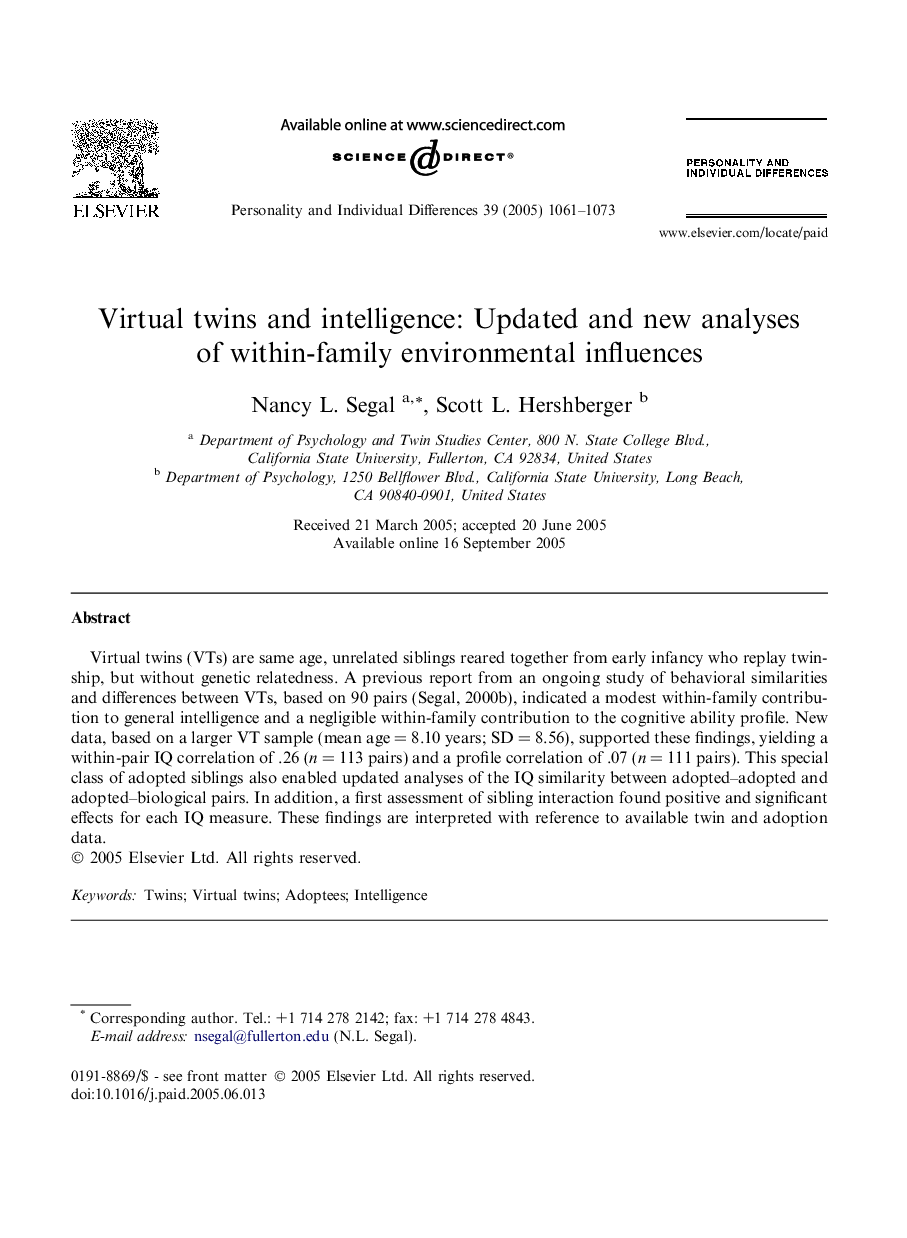| Article ID | Journal | Published Year | Pages | File Type |
|---|---|---|---|---|
| 10440847 | Personality and Individual Differences | 2005 | 13 Pages |
Abstract
Virtual twins (VTs) are same age, unrelated siblings reared together from early infancy who replay twinship, but without genetic relatedness. A previous report from an ongoing study of behavioral similarities and differences between VTs, based on 90 pairs (Segal, 2000b), indicated a modest within-family contribution to general intelligence and a negligible within-family contribution to the cognitive ability profile. New data, based on a larger VT sample (mean age = 8.10 years; SD = 8.56), supported these findings, yielding a within-pair IQ correlation of .26 (n = 113 pairs) and a profile correlation of .07 (n = 111 pairs). This special class of adopted siblings also enabled updated analyses of the IQ similarity between adopted-adopted and adopted-biological pairs. In addition, a first assessment of sibling interaction found positive and significant effects for each IQ measure. These findings are interpreted with reference to available twin and adoption data.
Related Topics
Life Sciences
Neuroscience
Behavioral Neuroscience
Authors
Nancy L. Segal, Scott L. Hershberger,
